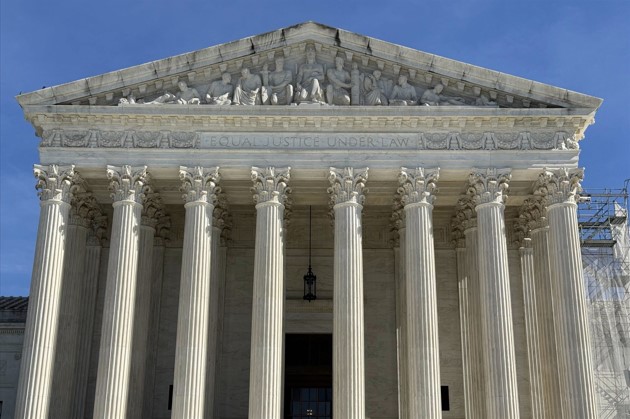Supreme Court Evaluates Birthright Citizenship Executive Order
on April 4, 2025 at 4:41 PM
The Trump administration approached the Supreme Court nearly a month ago, specifically on March 13, 2025.
Background of the Case
A coalition of states and advocates for immigrants’ rights converged on the Supreme Court on April 4, 2025, seeking to maintain federal court orders that prevent the enforcement of an executive order by President Donald Trump. This order seeks to eliminate birthright citizenship—an automatic right granted to individuals born in the United States. Washington and three other states argued that if the Supreme Court were to intervene, it would destabilize the judicial process and create an ongoing cycle of emergencies.
The 14th Amendment and Birthright Citizenship
The matter stems from an executive order issued by Trump on January 20, which proposed that children born in the U.S. to parents who are unlawfully present would not automatically obtain citizenship. This principle of birthright citizenship can be traced back to the 14th Amendment, ratified in 1868, which affirms that all persons born or naturalized in the U.S. are citizens.
Legal Challenges and Lower Court Rulings
Once the executive order was announced, several legal challenges emerged. In a significant ruling, Senior U.S. District Judge John Coughenour labeled the right to birthright citizenship a “fundamental constitutional right,” concluding that the executive order was “blatantly unconstitutional.” Following this, a federal appeals court in San Francisco upheld the decision to block the order, denying a plea from the government to lift the injunction.
Other cases in Maryland and Massachusetts echoed similar sentiments, with judges across these jurisdictions reinforcing the unconstitutionality of the executive order. U.S. District Judge Deborah Boardman asserted that “no court in the country has ever endorsed the president’s interpretation,” thereby granting subsequent temporary prohibitions on the order’s implementation.
The Government’s Request to the Supreme Court
During the Supreme Court proceedings, acting Solicitor General Sarah Harris requested that the judiciary allow for a partial enforcement of the executive order. This request aimed to limit the prohibitions to the specific individuals implicated in the lawsuits rather than a broader audience.
Arguments from the Challengers
- No Emergency Needs Addressing: The challengers underscored the absence of a true emergency, citing longstanding consensus on the constitutionality of the birthright citizenship.
- Importance of Universal Injunctions: All parties highlighted the necessity of maintaining nationwide injunctions to prevent a fragmented approach to citizenship rights.
- Impact on Families: CASA and other advocacy groups argued that narrowing the scope of orders could create chaos regarding citizenship verification for children born in the U.S.
- Constitutional Rights vs. Policy Frustration: The challengers refuted the government’s claim that maintaining current injunctions would hinder border security initiatives, suggesting a broad, overreaching application of the executive order.
Conclusion
The Supreme Court’s eventual decision will not only shape the landscape of immigration law but will also reinforce or challenge the interpretation of constitutional rights as they relate to citizenship. The Court’s handling of this significant issue remains to be seen as it balances governmental authority with constitutional guarantees.

